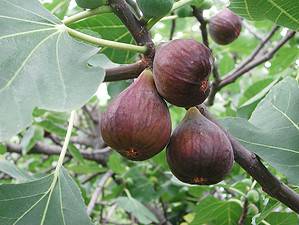Peppermint is a popular plant to grow. It makes a delicious tea and has an invigorating scent that pleases the senses. However, did you know that peppermint can be useful in other ways as well? Namely, this plant can help repel various creatures you may not want in your garden or home — pesky critters from insects to rodents. This natural repellent offers an environmentally friendly and harmless alternative to chemical methods. In this article, we’ll get to know the 7 pesky critters that hate the smell of peppermint. We’ll also explain the science behind this herb’s repellent properties.
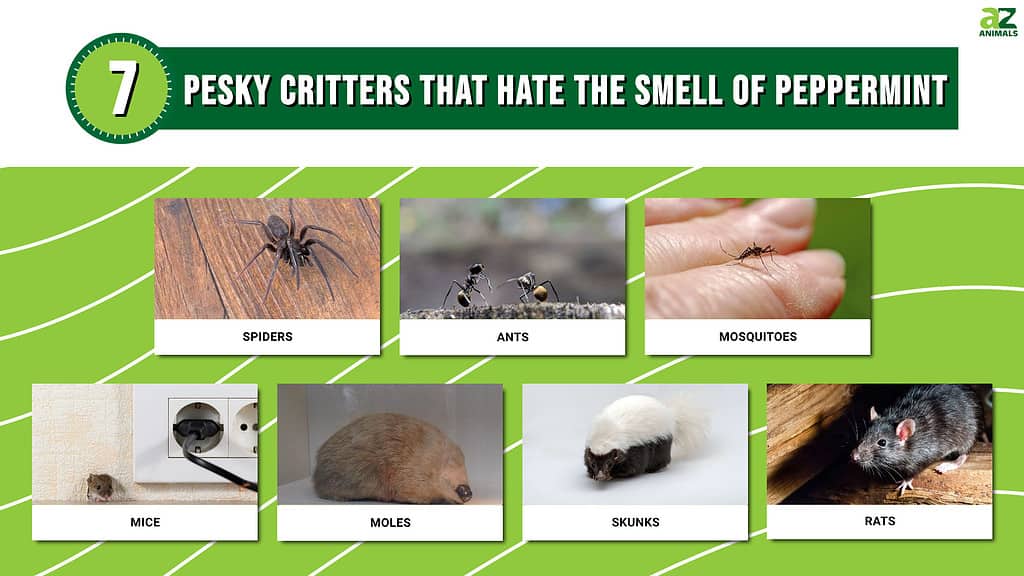
1. Spiders (Araneae Order)
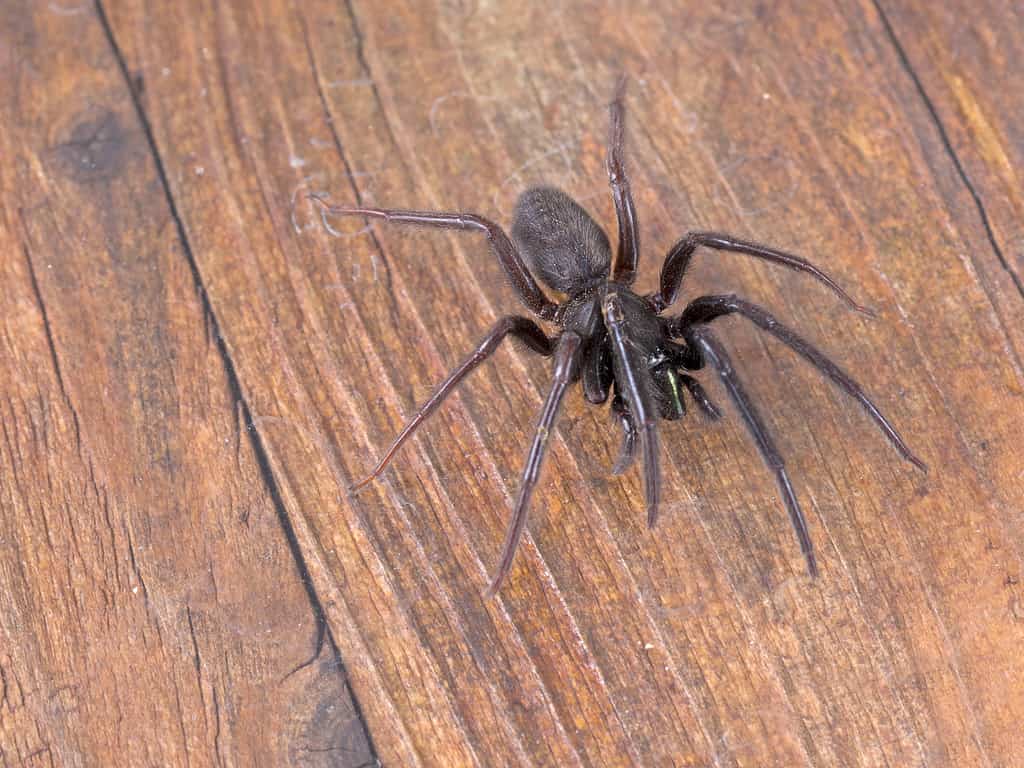
One of the pesky critters that peppermint can repel is none other than spiders.
©iStock.com/Goldfinch4ever
Spiders are arachnids, and as everyone knows, these creatures have eight legs, multiple eyes, and the ability to spin intricate webs. Though they play a vital role in controlling insect populations, many people consider them a pest within the home. Their creepy appearance definitely doesn’t help their case! Furthermore, their quick movements and unsettling appearance can invoke fear, and some species may even carry venom that can harm humans. But since spiders play an important role in the natural world, it’s important that we find humane and natural ways to deter spiders from our spaces.
The scent of peppermint is particularly offensive to spiders. One theory for this is that the strong, sharp smell of peppermint oil interferes with the spider’s ability to sense its environment through its chemosensory system. This system is essential for hunting, mating, and navigation. By disrupting these vital functions, the peppermint scent makes an area inhospitable to spiders.
2. Ants (Formicidae Family)
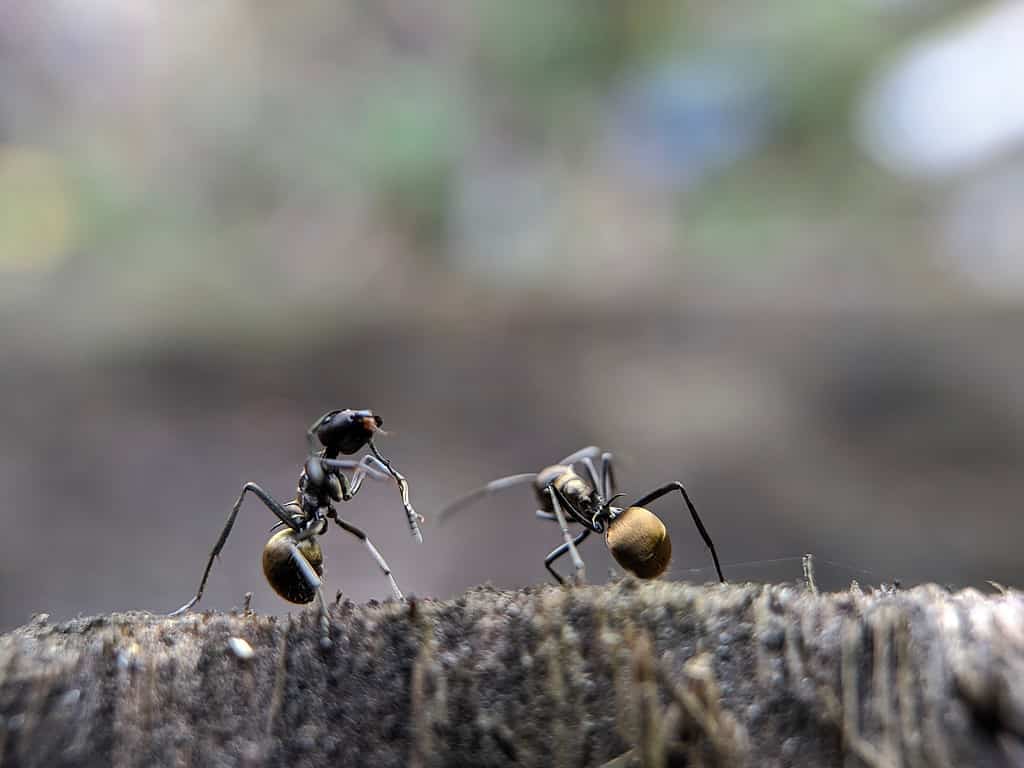
These tiny critters can be an annoying presence in the home. But thankfully, peppermint can help keep them away!
©Dhe Tong/Shutterstock.com
Ants are social insects known for their highly organized colonies and distinctive segmented bodies consisting of a head, thorax, and abdomen. With thousands of species all across the world, ants are diverse in appearance and behavior, but many share an unfortunate propensity to invade human spaces in search of food. As household pests, ants can be a real nuisance. They can contaminate food and damage structures; some species can even deliver painful bites. So, the last thing you want is to open your cabinet to find an ant infestation! Their ability to form long trails and swiftly mobilize makes them particularly challenging to control, primarily once they’ve found a reliable food source within a home.
Thankfully, peppermint can come to the rescue! Peppermint’s pungent aroma is a natural deterrent to ants. The scent disrupts the pheromone trails that ants use to communicate and navigate. These trails are vital for ants to find food and relay information to the colony. The overpowering smell of peppermint confuses and masks these trails, rendering the ants unable to follow them.
3. Mosquitoes (Culicidae Family)
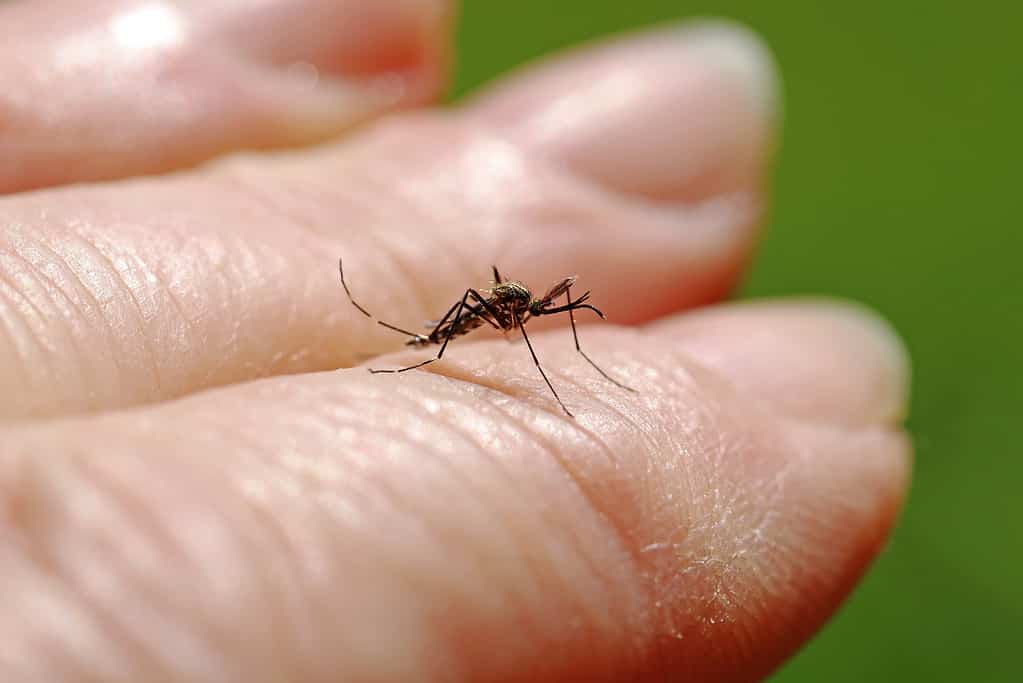
The last thing you want is to be bitten by a mosquito in the safety of your own home! Use peppermint to repel them.
©Astrid860/ via Getty Images
Summer may be a favorite season for many, but the warmer weather brings along with it one of the most hated insects in the world: mosquitoes. Mosquitoes are tiny, flying insects best recognized by their slender bodies, long legs, and proboscis, a specialized, elongated mouthpart used for piercing and feeding. The females of most mosquito species are infamous for sucking blood from mammals, including humans, to nourish their eggs. As pests, mosquitoes are annoying as they cause incredibly itchy bites and can also transmit various dangerous diseases such as malaria, dengue fever, and Zika virus. Their distinctive high-pitched buzzing and potential health threats make them unwelcome guests in many regions worldwide.
Peppermint oil contains compounds that have proven repellent properties against mosquitoes. The potent aroma of peppermint is believed to overwhelm their olfactory senses. Mosquitoes rely on their sense of smell to locate a host, usually tracking the carbon dioxide produced by breathing and certain body odors. When the robust scent of peppermint fills the air, it acts as a mask, making it harder for mosquitoes to hone in on their targets.
4. Mice (Mus musculus)
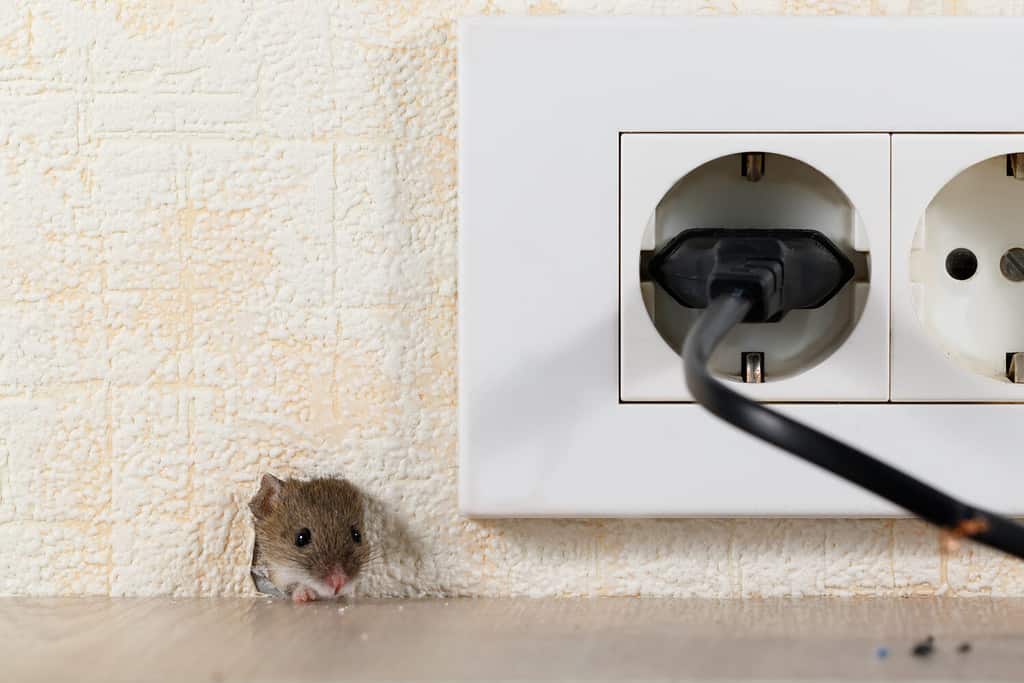
Although they may look cute at first glance, mice can cause considerable damage to a home and even carry diseases.
©torook/Shutterstock.com
Mice are small furry mammals with distinguishing features such as rounded ears, slender snouts, and whip-like tails. Unlike rats, which are pretty universally hated, these critters often invoke contrasting feelings in people. While some find them endearing, others see them as destructive pests. In households, however, when they roam free, mice can cause considerable damage, gnawing through electrical wires and other materials and spoiling food with droppings. Their rapid reproduction and adaptability often lead to infestations that present serious health risks, including the transmission of diseases like hantavirus and salmonella.
The powerful, menthol-rich aroma of peppermint is a natural deterrent to these rodents. Mice rely heavily on their highly developed sense of smell for navigation and survival, and the intense scent of peppermint overwhelms and confuses them. This sensory assault makes areas treated with peppermint unattractive to mice.
5. Moles (Talpidae Family)
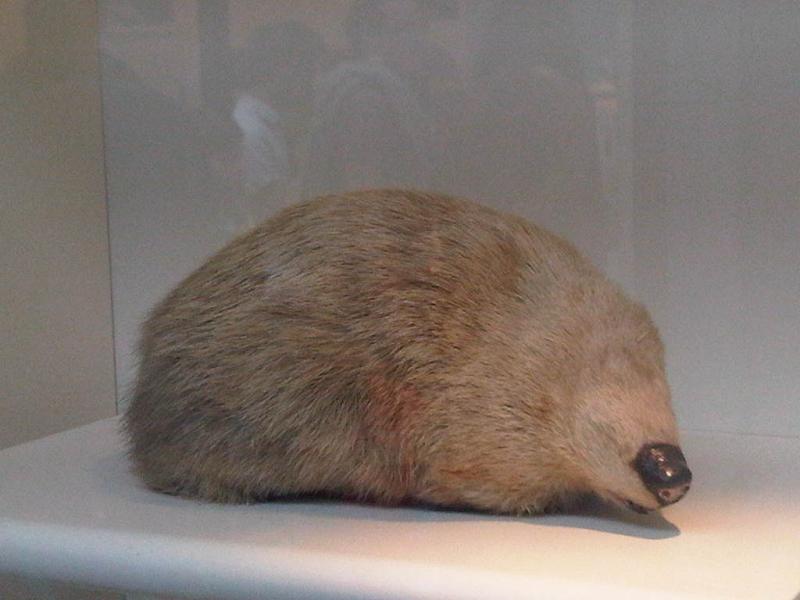
Another pesky critter you can deter with the help of peppermint and its aromatic properties is the mole.
©Emőke Dénes, CC BY-SA 4.0, via Wikimedia Commons – License
Moles are small, burrowing mammals known for their velvety fur, spade-like forelimbs, and almost invisible eyes and ears. These features make them supremely adapted to a subterranean lifestyle. While their appearance might hint at a creature perfectly designed for life underground, this very specialization often puts them in conflict with gardeners and homeowners. Moles tunnel through the soil, searching for insects, particularly earthworms, resulting in upturned gardens, damaged lawns, and unsightly molehills. These disruptions not only mar the aesthetics of landscapes but can also damage plant roots, affecting their health and growth.
The scent of a peppermint plant can act as a natural deterrent for these ground-dwelling creatures. Moles possess an acute sense of smell which they rely on heavily to locate food and navigate their dark, underground world. Introducing the peppermint plant’s potent and pungent aroma into their environment can be jarring and uncomfortable. The scent is believed to be overwhelming and disorienting to them, so they will naturally avoid these spots. If you’re not growing any peppermint in your garden, don’t worry! You can also spray some natural peppermint oil in your garden for the same results.
6. Skunks (Mephitidae Family)
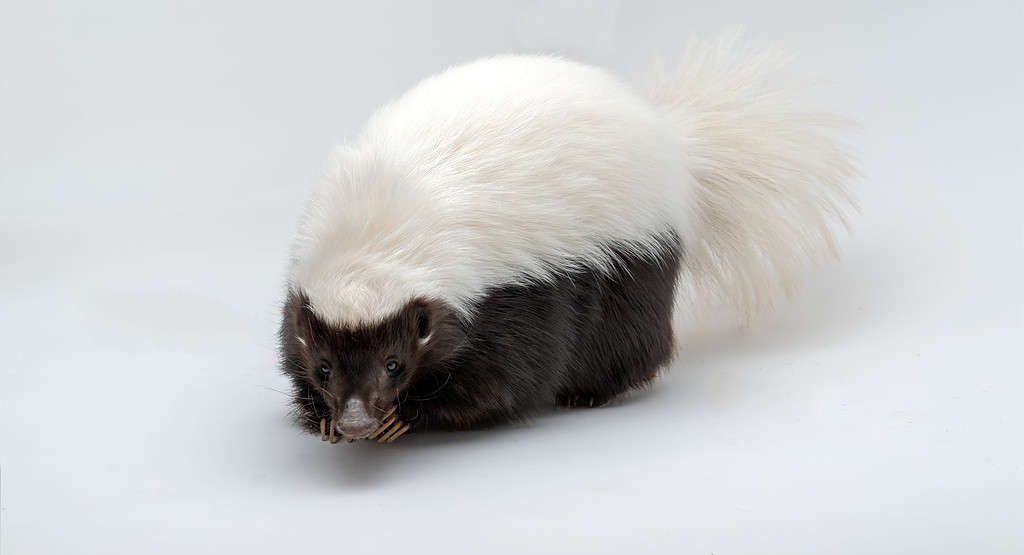
Deter skunks from your home and garden by planting peppermint plants and spraying peppermint oil around your home.
©iStock.com/Jay Pierstorff
Skunks are nocturnal mammals known for their distinctive black-and-white coloring and notorious defense mechanism: spraying a foul-smelling liquid when threatened. In terms of appearance, they have a stout body, short legs, and a bushy tail. While skunks contribute to the ecosystem by controlling insect and small rodent populations, they are often considered pests when they reside near human habitation. Their digging habits can damage lawns and gardens, and their spray is incredibly malodorous. The spray may also cause temporary blindness or irritation if it sometimes comes into contact with the eyes!
Interestingly, skunks, creatures so strongly associated with a powerful smell, seem to hate the strong scent of peppermint. The theory is that the peppermint’s strong and piercing aroma can overwhelm a skunk’s sensitive olfactory senses, creating an uncomfortable and repellent environment. Since skunks rely heavily on their sense of smell to locate food and communicate with one another, the disorienting effect of peppermint can make an area treated with this fragrance unappealing.
7. Rats (Rattus)
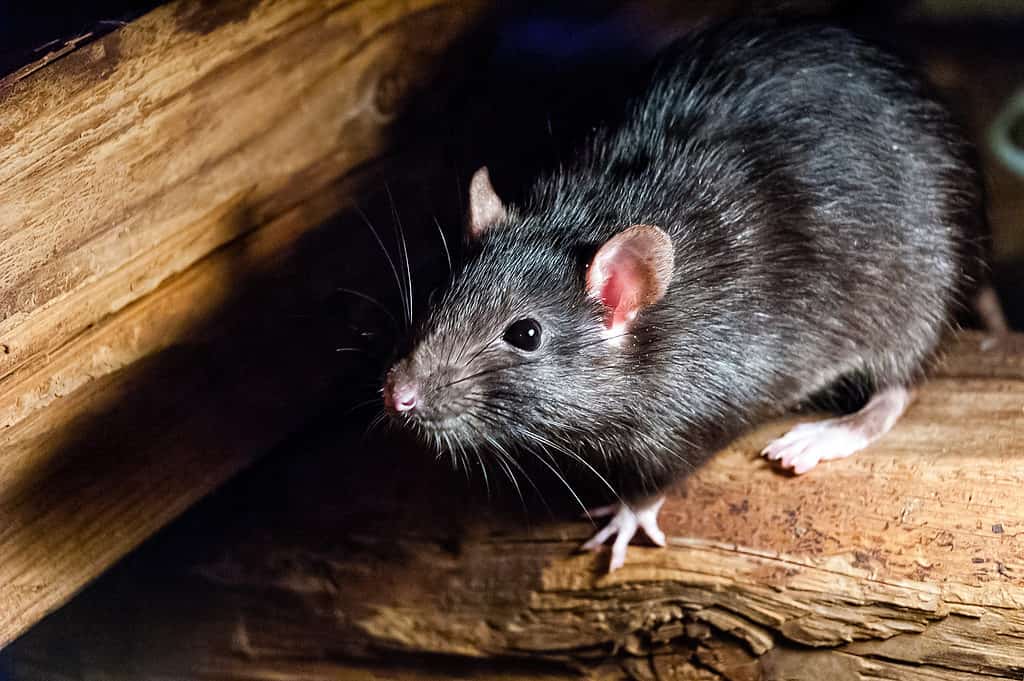
Peppermint can deter rats from your home, as the strong smell of the herb can be overwhelming and unsettling.
©Carlos Aranguiz/Shutterstock.com
Rats are medium-sized, long-tailed rodents with a keen sense of adaptability. Their physical characteristics include a pointed snout, large ears, and sharp incisors that never stop growing. While they have been intertwined with human history for millennia, often proving their intelligence and resourcefulness, they are commonly regarded as pests in many urban and rural settings. Unfortunately, their penchant for gnawing can damage structures, electrical wires, and even plumbing systems. Additionally, rats can be carriers of various diseases, like the bubonic plague, salmonella, and hantavirus, making their presence in homes and businesses a significant health concern.
Thankfully, the intense and pleasing aroma of peppermint is actually repellent to rats. These rodents possess a heightened sense of smell, which they use to locate food, detect danger, and communicate with each other. So, the peppermint’s sharp and penetrating scent can be overwhelming and unsettling for its olfactory receptors. Peppermint can make an environment seem unfamiliar and inhospitable by interfering with their ability to interpret their surroundings through scent.
How to Use Peppermint to Repel Pesky Critters
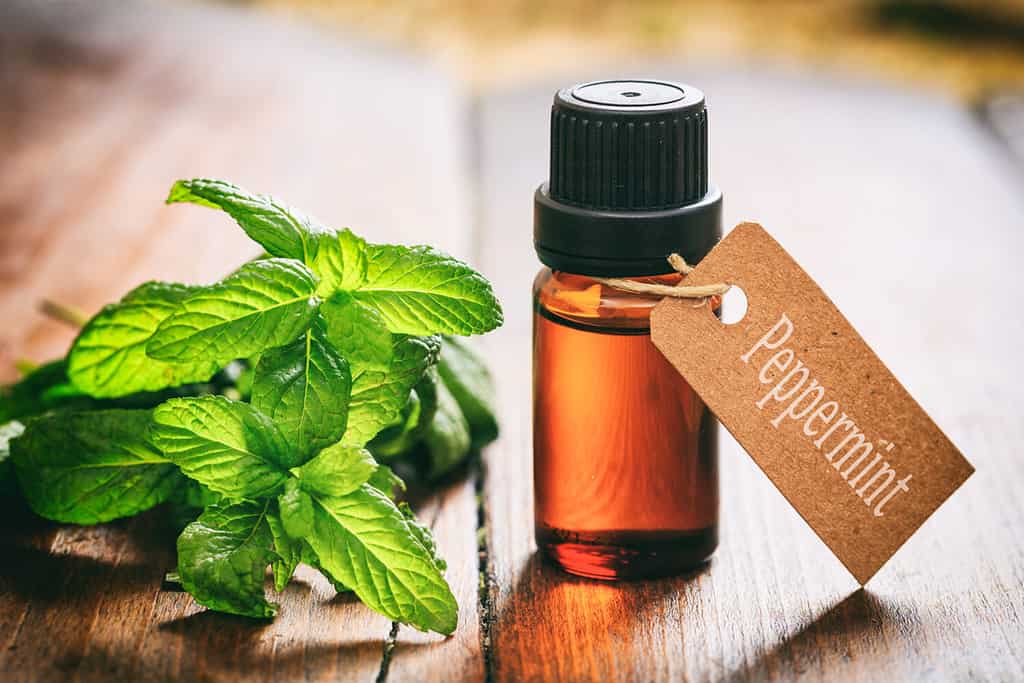
To deter various annoying critters from your home, peppermint is super helpful. And as a plus, it smells good!
©rawf8/Shutterstock.com
Peppermint’s fresh and intense aroma has proven to be more than just a pleasant scent for humans; it’s also an effective repellent for many critters and animals, from rodents to insects. As we’ve discovered, the essential oils found in peppermint interact with the sensitive olfactory systems of many pests, creating a natural barrier that can deter them from invading certain areas of your home. You can use peppermint in roof spaces, attics, and basements for rodent control, including rats and mice. So, how exactly do you use peppermint to repel these pesky critters? Well, there are a few different methods.
In the Garden
Gardeners might find peppermint to be a valuable ally in protecting their plants from moles, ants, and even larger herbivores. Plant peppermint around the perimeter of the garden or applying a peppermint oil spray to the soil can create an invisible fence against these unwanted visitors. Furthermore, you can easily deter skunks and other digging animals that may lurk under houses or decks by placing peppermint-soaked rags or spritzing peppermint oil in those dark, hidden spaces. You should also treat the entry points where you have found pests emerging.
At Home
What about inside the home? Placing cotton balls soaked in peppermint oil or peppermint oil sachets in areas around the home can help keep these critters at bay. The strong scent is typically overwhelming for these critters, and they’ll avoid areas where the smell is prominent. If there’s one specific area in the home that you are targeting, you can also pot a peppermint plant and put it in the area where these critters congregate. This is especially great for the kitchen, as you’ll have easy access to the peppermint for a nice herbal tea when you feel like it as well!
One thing to keep in mind when using peppermint as a repellent is that concentration matters. Pure peppermint essential oil is often the most effective, and it must be reapplied regularly, especially after rain or watering, to maintain its potency. Always take care to avoid direct contact with skin and eyes, and be mindful of pets, as the intense scent may also be unpleasant and harmful for them.
Summary of Pesky Critters That Hate the Smell of Peppermint
| Number | Critter | Taxonomy |
|---|---|---|
| 1 | Spiders | Araneae (Order) |
| 2 | Ants | Formicidae (Family) |
| 3 | Mosquitoes | Culicidae (Family) |
| 4 | Mice | Mus musculus |
| 5 | Moles | Talpidae (Family) |
| 6 | Skunks | Mephitidae (Family) |
| 7 | Rats | Rattus |
The photo featured at the top of this post is © rawf8/Shutterstock.com
Thank you for reading! Have some feedback for us? Contact the AZ Animals editorial team.




